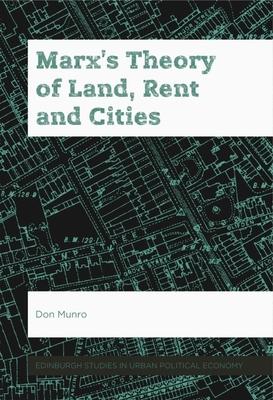Bringing together Marx's original writings on land, rent and the landed property class, this book applies them to contemporary cities in the Global North and Global South. The book shows how landed property, and not just labour and capital, directly affects urban economic development, the built environment, urban governance and the quality of life of people living in cities. It also shows how land, rent and class transform cities in different ways depending on the indigenous, Asiatic, feudal, capitalist or other modes of production that mould the form and substance of cities. Presenting a new comparative approach, this book provides novel insights into the origins of, and solutions to, many of today's urban problems including urban enclosures, exclusive property development, the financialisation of land, land grabbing, and climate change.

Bringing together Marx's original writings on land, rent and the landed property class, this book applies them to contemporary cities in the Global North and Global South. The book shows how landed property, and not just labour and capital, directly affects urban economic development, the built environment, urban governance and the quality of life of people living in cities. It also shows how land, rent and class transform cities in different ways depending on the indigenous, Asiatic, feudal, capitalist or other modes of production that mould the form and substance of cities. Presenting a new comparative approach, this book provides novel insights into the origins of, and solutions to, many of today's urban problems including urban enclosures, exclusive property development, the financialisation of land, land grabbing, and climate change.